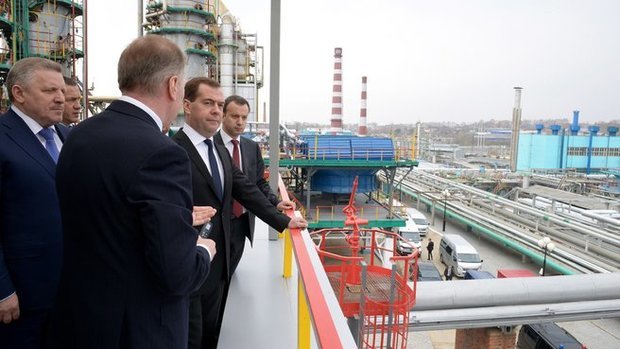Oil tax overhaul to cut Russian oil companies' revenues
Russia will decrease oil export duties from 30% to zero in the next six years under a large-scale tax reform. Although the decision will decrease the tax burden on oil producers, it also entails a reduced state support of the local refining industry. Over the last decade, the state has invested in refinery modernisation five times more than the industry players have.
A major tax overhaul in Russia's oil industry is about to start pressuring the earnings of major oil companies, warns Oilprice.com, adding that refiners will be hit the hardest. As a result of the reforms, the tax burden on downstream operations will rise, while the upstream sector will switch from production-based to profit-based taxation.
At the beginning of June, Russia's Finance and Energy Ministries agreed with oil companies to begin phasing out oil export duties. The current 30% duty will be decreased by 5% annually over the next six years to reach zero in 2023. The new profit-based tax will replace both the export duty and mineral resource tax, which is based on production volume. Local oil producers support the reform, as they consider it will stimulate investments in production expansion.
However, S&P Global Platts considers that the phase-out of the oil export duty actually seeks to reduce state support for the local refining industry, which has exceeded industry spending on refinery modernisation by five times over the past decade. Changing the system will save the government about $16 billion (1 trillion rubles) annually that is spends on subsidies for refiners. Oil companies will also see a higher tax burden overall due to a temporary increase in the mineral resources tax on crude oil and gas condensate scheduled for 2019.

The government aims to stimulate refinery upgrades and higher light oil product output. The Ministry of Finance has proposed excise refunding to those refiners who invest in upgrading their processing facilities. Besides, Moscow alleviated the export duties for crude and light oil products and raised them for heavy oil products in 2015.
Providing sufficient supplies to the domestic market is another government's aim. The Kremlin considers introducing a mechanism to quickly raise the export duties on oil products in case of a surge in oil prices. In addition to a well-supplied domestic market, the mechanism can bring some additional revenue to the 2018 budget. The tax reform overall, including the switch to a profit-based tax in the upstream sector, could generate $58 billion (3,6 trillion rubles) over the next six years, based on an average price of oil of $50 per barrel and the current ruble exchange rate.